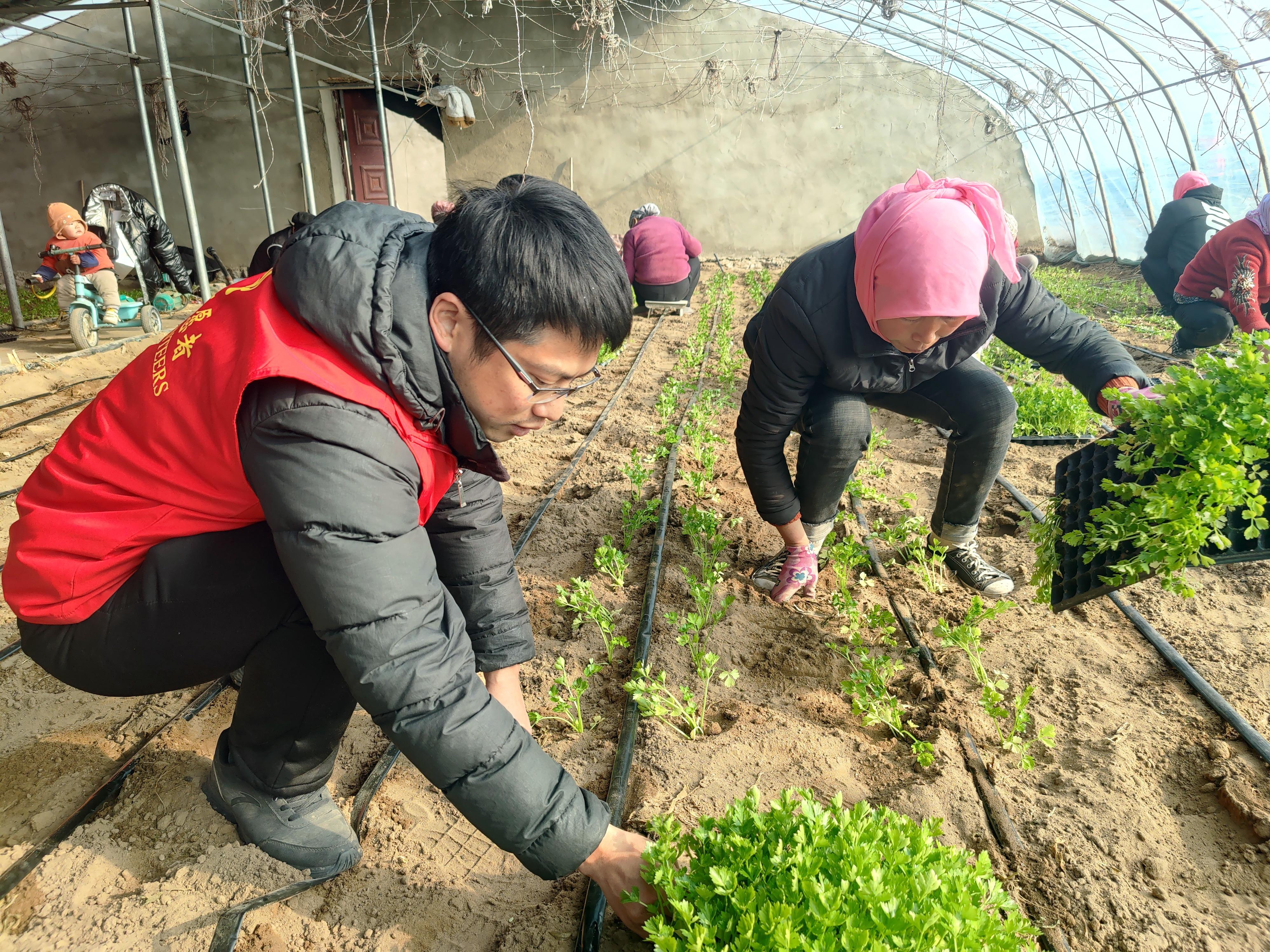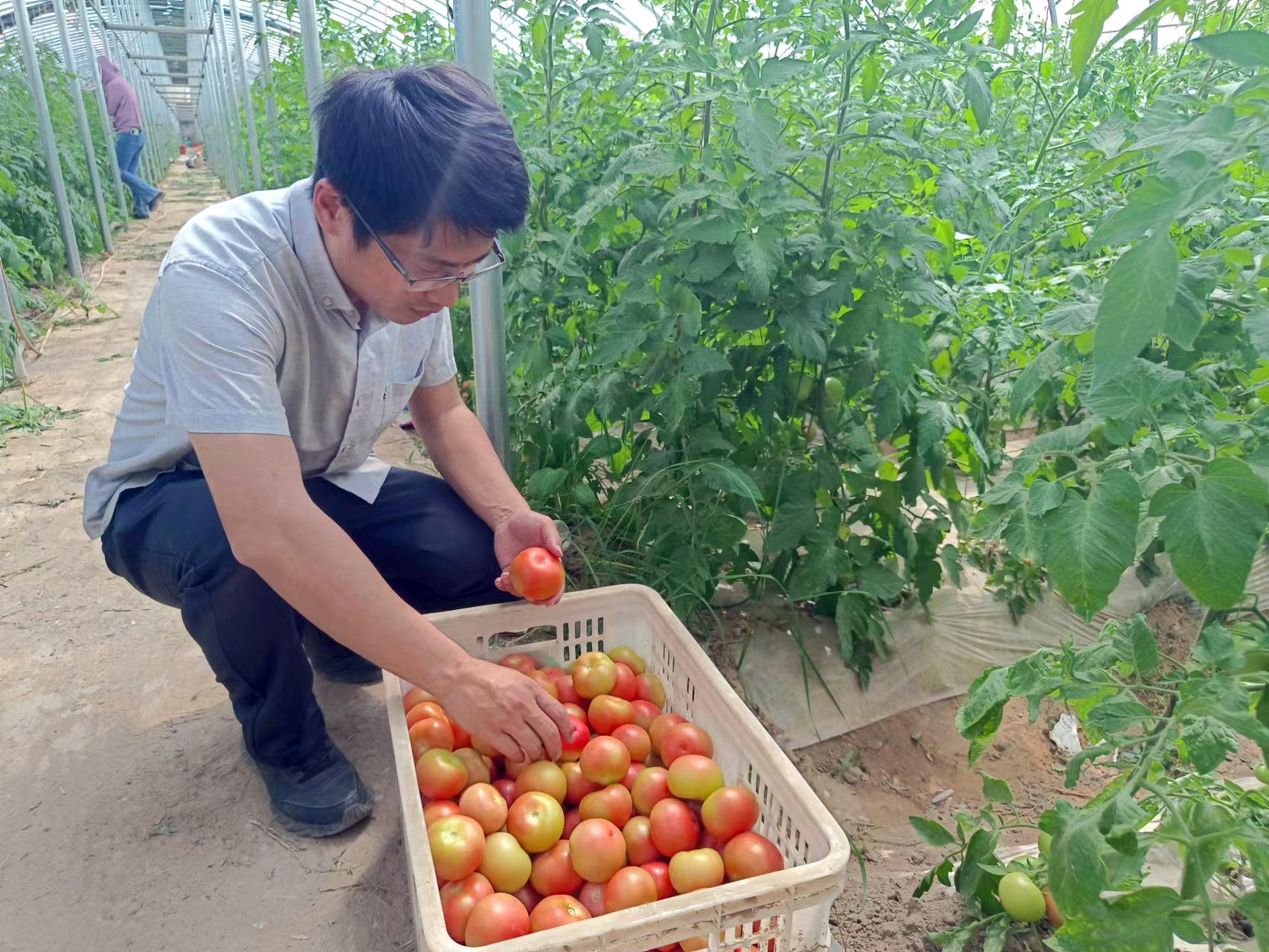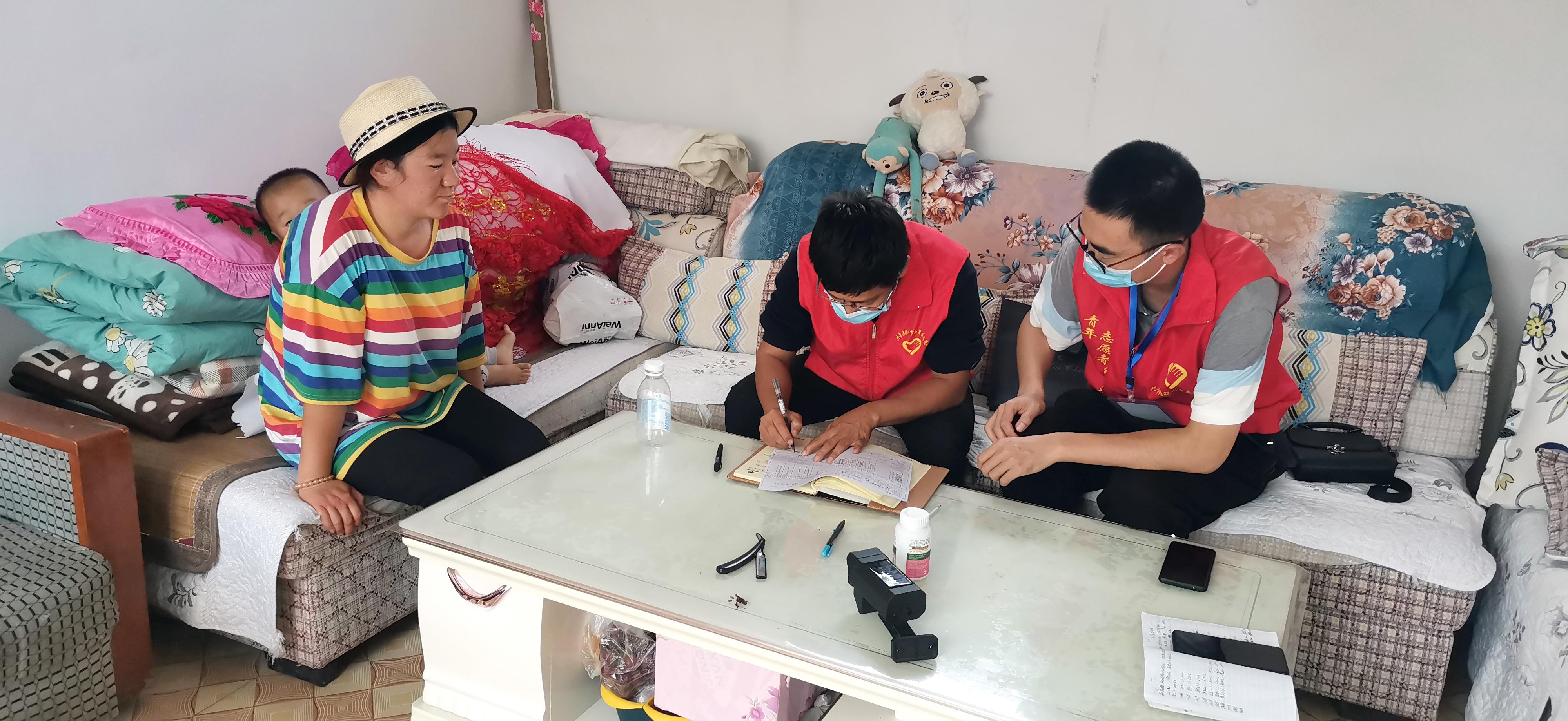Tsinghua graduate hopes mainland move helps bring prosperity to rural Xingsheng village
 Tong Chun-wai (left) helps farmers plant strawberry seedlings in a greenhouse in Xingsheng village in Yinchuan, Ningxia Hui autonomous region. (PHOTO PROVIDED TO CHINA DAILY)
Tong Chun-wai (left) helps farmers plant strawberry seedlings in a greenhouse in Xingsheng village in Yinchuan, Ningxia Hui autonomous region. (PHOTO PROVIDED TO CHINA DAILY)
Since graduating from Tsinghua University in 2021, Tong Chun-wai has devoted himself wholeheartedly to bringing prosperity to rural areas in Ningxia Hui autonomous region.
The 36-year-old was born in Zhongshan, Guangdong province, and moved to Hong Kong to attend junior high school in 2001. He started up his own technology consultancy company after earning a bachelor's degree at the Chinese University of Hong Kong. He was later admitted to Tsinghua University and received his master's degree in politics and international relations in 2018.
"I have had very strong feelings about the motherland since I was young. I spent my childhood in a small town in Guangdong's Dongguan city, and the living conditions were not that good at the time. I saw prosperity after moving to Hong Kong, and I've made up my mind to make my own contribution to China's development, especially in the backwater areas," he said.
In 2021, Tong became a civil servant in Yinchuan, Ningxia. He then took a temporary position as a village official in the city's Xingsheng village in November that year.
"I wanted to have some experience living and working in the nation's northwest. I don't have big goals, but I hope my work can benefit the local people," he said. "My family members didn't support my decision at first, as I had to give up my business and comfortable life in Hong Kong. But my savings were enough to support the family, and my mother, my wife and our three children moved to Yinchuan with me."
 Tong harvests tomatoes in a greenhouse. (PHOTO PROVIDED TO CHINA DAILY)
Tong harvests tomatoes in a greenhouse. (PHOTO PROVIDED TO CHINA DAILY)
The language barrier was the biggest problem Tong encountered.
"The villagers speak with a very strong accent, and I could only understand about 10 percent of what they said. I spoke rather poor Chinese at the time due to my accent, so the local villagers could hardly understand me either," he said.
"I'm grateful that my warmhearted colleagues served as my interpreters and helped me communicate with the villagers. Now, I can understand about 70 percent of what they are saying."
He also had some troubles with technology. "The working environment was not very good, which I expected. I used to work in the internet sector and was used to high-speed internet and good computers, so it took a rather long time to adapt to the computers in the village committee office," he said.
In April last year, Tong got in touch with some strawberry growers in Jiangsu province to introduce the crop to the village. "The village used to grow tomatoes, celery and watermelons, which have lower added values. Village development depends on higher-quality industries, so we've made efforts to add value to the local agricultural industry by introducing strawberry planting and setting up produce-processing companies."
Tong said that the strawberry growers from Jiangsu have a lot of experience and reliable retail channels, and they earn an average net profit of 600,000 yuan ($82,367) per hectare.
"A strawberry grower from Jiangsu rented 16 greenhouses in our village and offered free technology guidance and retail services to the villagers growing strawberries," he said.
 Tong (middle) and a colleague visit a family in the village. (PHOTO PROVIDED TO CHINA DAILY)
Tong (middle) and a colleague visit a family in the village. (PHOTO PROVIDED TO CHINA DAILY)
Tong has also made efforts to improve the education of children in the village. He initiated a voluntary educational campaign last summer for children ages 6 to 12, teaching them mathematics, English and Chinese poems using games and videos.
"We planned to include 36 children in the campaign but received nearly 100 applications. I didn't want any child to be left behind, so I let them all in, around 80 children. These kids were separated into four classes by age, and I taught them in my spare time," he added.
In April, he invited 28 students and teachers from Tsinghua University to visit the village's school and give lectures to the children. "I was very impressed by the children's essays during their visit. The kids wrote down their wishes to create a good life for their parents. I've seen the hope in the eyes of those who want to change their lives through education," he said.
He said that he will encourage more young people from Hong Kong to visit and work on the mainland.
"The mainland has embraced high-quality development in recent years. Though the COVID-19 epidemic brought some troubles and the nation is facing challenges from the world, we are still heading toward a bright future," he added.
Contact the writers at chengsi@chinadaily.com.cn


